Science & Society
Sign up for our newsletter
We summarize the week's scientific breakthroughs every Thursday.
-
 Neuroscience
NeuroscienceFrequent liars show less activity in key brain structure
Brain activity changed as people lied more, a new study finds.
-
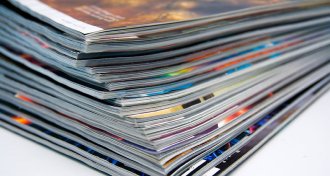 Science & Society
Science & SocietyBlame bad incentives for bad science
Scientists have to publish a constant stream of new results to succeed. But in the process, their success may lead to science’s failure, two new studies warn.
-
 Science & Society
Science & Society2016 Nobels: Science News fans read it here first
Editor in chief Eva Emerson discusses Nobel-winning science and what the future may hold.
By Eva Emerson -
 Humans
HumansTom Wolfe’s denial of language evolution stumbles over his own words
Tom Wolfe’s book denies that language evolved and attacks Darwin and Chomsky with smugness lacking substance.
-
 Genetics
Genetics‘Three-parent babies’ explained
Several in vitro techniques can produce babies with three biological parents.
-
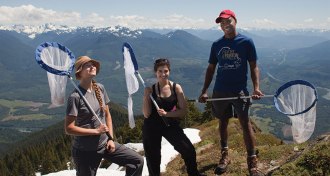 Ecosystems
Ecosystems‘Citizen Scientist’ exalts ordinary heroes in conservation science
Journalist Mary Ellen Hannibal’s “Citizen Scientist” tells tales of ordinary people contributing to science.
-
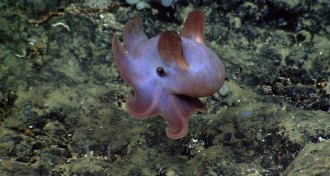 Oceans
OceansAtlantic monument is home to unique and varied creatures
A region of ocean off the coast of Cape Cod has become the first U.S. marine national monument in the Atlantic Ocean.
-
 Science & Society
Science & SocietySometimes failure is the springboard to success
Editor in chief Eva Emerson discusses scientific discoveries that resulted from failures large and small.
By Eva Emerson -
 Tech
TechXPRIZE launched new kind of space race, book recounts
'How to Make a Spaceship' chronicles the XPRIZE challenge that helped ignite the private space industry.
By Meghan Rosen -
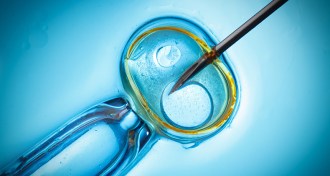 Genetics
GeneticsFirst ‘three-parent baby’ born from nuclear transfer
The first human baby produced through spindle nuclear transfer was born in April, New Scientist reports.
-
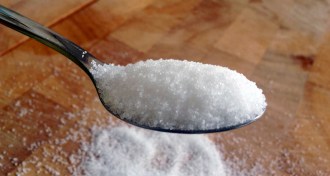 Health & Medicine
Health & MedicineSugar industry sought to sugarcoat causes of heart disease
Sugar industry has long, sweet history of influencing science.
By Laura Beil -
 Earth
EarthNuclear blasts, other human activity signal new epoch, group argues
A group of scientists will formally propose the human-defined Anthropocene as a new epoch in Earth’s geologic history within a few years, probably pegging the start date to nuclear tests.